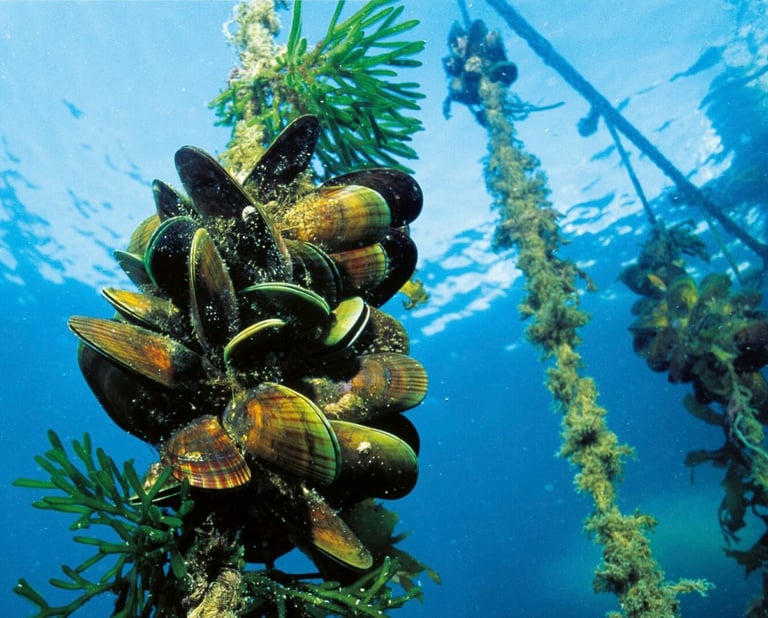
Mussels UK
Mussel farming in the UK involves suspending ropes or rafts in coastal waters to cultivate mussels, which not only provides a sustainable source of protein but also enhances local marine biodiversity and water quality.
Environment: The UK’s mussel farming industry is also exploring new techniques and technologies. For example, researchers at the University of Stirling have developed a model to understand how mussel larvae move in currents, which can help farmers identify optimal locations for farms. Mussel farms can attract a wide range of species, including commercially valuable ones like brown crab and lobster, which can benefit the local ecosystem.
Sustainable: Mussel farming can be done in both sheltered sea lochs and estuaries and offshore. Offshore mussel farms, such as the one in Lyme Bay, Devon, are becoming increasingly popular due to their environmental benefits and potential for higher production. These farms can produce up to 10,000 tonnes of mussels per year and are less labor-intensive as wild mussels attach themselves to ropes and feed on naturally occurring plankton.
Production: Mussel farming in the UK is a significant industry, with notable production in Scotland, England, and Wales. The UK produces over 200,000 tonnes of fish annually, with mussel production being one of the main strands of shellfish farming. In 2022, Scotland alone produced 9,092 tonnes of mussels, the highest level of mussel production recorded in the country.
Challenges and Opportunities: The industry faces challenges such as spat availability, public opposition to the visual impact of farms, and the need to develop new markets. Despite these challenges, mussel farming continues to grow, with the potential to contribute to Scotland’s ambition to double food production by 2030.
Mussels in the UK



Although FishFarmSolutions.com does not endorse third-party services, all links are reviewed for relevance and operational status. Verified listings meet our basic criteria for transparency and contactability.
